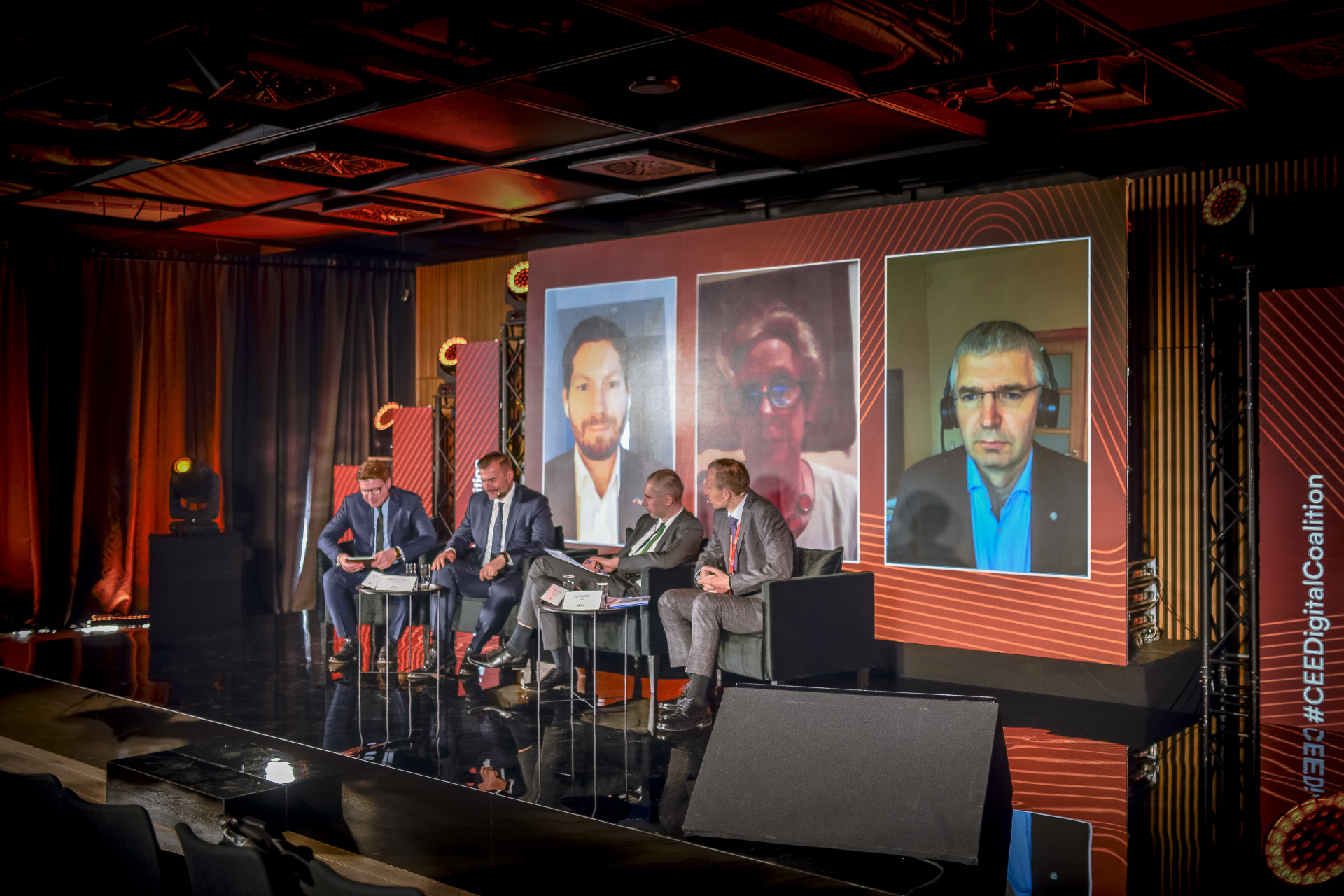Technology protectionism must not stand in the way of further transatlantic cooperation

The war in Ukraine has shown how important cooperation between Europe and the United States is. I am glad that the level of understanding of this issue is much higher than it was before 24 February - said the president of the Digital Poland Association, Michał Kanownik, at the CEE Digital Summit in Warsaw. He and other speakers agreed that further strengthening of technological cooperation between EU countries and the US is essential, but to achieve this, a friendly legislative environment and getting rid of technology protectionism is needed.
On 13 October the CEE Digital Summit took place in Warsaw, during which representatives of the technology industry from the Central and Eastern European region addressed current issues concerning digital transformation. The conference programme included a panel on transatlantic cooperation.
President of Digital Poland, Michal Kanownik, pointed out that the Covid-19 pandemic and the Russian attack on Ukraine have highlighted the importance of cooperation between EU countries and the United States. – I am glad that the level of understanding on this issue is much higher than before 24 February - he said. - We need to understand that both Poland and the CEE region are not an isolated island – he added.
According to Kanownik, the region's countries should not develop many different cybersecurity systems. – Undoubtedly, we will be safer if we share between ourselves different solutions and experiences in order to create a common defence wall. Technological assistance from the US is extremely important here – he stressed.
Kanownik pointed out that EU regulations "should stimulate transatlantic cooperation". He indicated that a "friendly environment" must be created in Europe for further cooperation in the fields of technology development and cybersecurity.
A similar view was expressed by Frances Burwell PhD, a representative of the Atlantic Council. In her opinion, the biggest obstacles to further cooperation can be created by the partners themselves, i.e. the US and Europe, through harmful legislation. – We must be very careful when we design the cryteria for making our systems. Whether it is cloud, cybersecurity system, servitization or IOT regulations in terms of cybersecurity – she said. – We must make sure those things do not exlude other. They are not excluding like-minded countries because they are non -EU or that they are not US based companies – Burwell noted. – There is a lot we can do together but we cannot create those artificial barriers – she stressed.
Mindaugas Ubartas of Infobalt agreed with Burwell. – Trying to shut the way to the European market for US companies and the other way around will lead to no good – he stated. Ubartas pointed out that humanity is going to achieve a real-time economy sooner or later. – Protectionism in EU regulations stand in its way – he said.
Igor Zgrabjić of Google also addressed the issue of market protectionism. According to him division has always been the biggest challenges. – Luckily we haven’t seen much of a division in the EU-US relations recently We should however, steer clear of digital protectionism and even digital authoritarianism – Zgrabijć pointed out.
Mark Boris Adrjanic, representative of the European Institute of Innovation and Technology (EIT) and former Slovak minister for digital transformation, concluded that transatlantic relations are going to be strengthened in the wake of the war in Ukraine. In consequence, cooperation between the two continents is also going to grow.